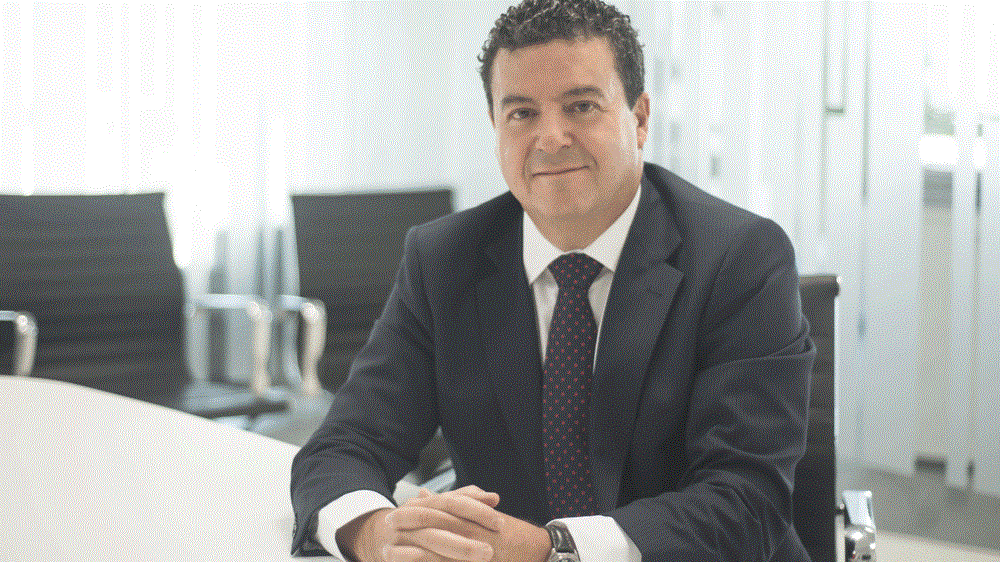

Q&A with Jesus Sancho, managing director of ACCIONA Middle East
 Q. Water losses remain a major issue for most utilities in the region. In addition to upgrading infrastructure, what technology solutions are available to ease this problem?
Q. Water losses remain a major issue for most utilities in the region. In addition to upgrading infrastructure, what technology solutions are available to ease this problem?
Non-revenue water (NRW) is the difference between the amount of water that is produced by a water utility for consumption/use, and the amount of water that is actually billed to customers.
Worldwide, the average water utility loses about 20 per cent of its water to NRW losses. What business can afford to lose one-fifth of all its product to breakage?
Leaks are a particular problem for Gulf countries, as they have the lowest per capita renewable freshwater resources in the world.
In order to solve this problem, ACCIONA recently launched BIONS (business intelligence of network solutions), a new intelligent data platform in the cloud for water management.
BIONS is able to detect, analyse and manage failures and incidents in the water supply network such as leaks, breaks or faulty assets, and thanks to artificial intelligence and machine learning, it can also predict when they are likely to happen.
BIONS defines the most optimal operational decisions, and enables the most efficient and sustainable output from water systems to be obtained.

ACCIONA recently launched BIONS, a new intelligent data platform in the cloud for water management
Q. The regional construction industry is currently being disrupted by a number of emerging technologies. How is ACCIONA contributing to these developments?
Digital technologies and new sustainable materials are making the construction industry more efficient. ACCIONA is at the forefront of these trends thanks to innovations from our construction technology centre in Spain.
The facility serves as a mega-innovation laboratory where ACCIONA designs sustainable infrastructure that is equipped to deal with the worst effects of the climate emergency. The main areas of research for construction projects include the digitisation of construction processes, the improvement of environmental parameters, and the use of new materials to reduce the potential impact on nature, to name a few.
Some of the emerging technologies we are using today include computerised control systems for tunnel-boring machines, building information modelling, drone surveys and specialised control software at one of our key projects in Dubai: the Roads & Transport Authority’s Dubai Metro Route 2020 project.
Q. With growing urbanisation, managing construction waste is an important part of cities’ overall sustainability programmes. What developments are taking place in this niche sector?
 New technologies can play a key role in reducing waste. One example where ACCIONA is leading the way is in large-scale 3D printing in concrete. This reduces the energy and resources needed to produce concrete building elements, and reduces waste thanks to the recycling of raw materials. We launched the world’s biggest operational 3D printer using Powder Bed technology (made with DShape® 3D) a year ago in Dubai.
New technologies can play a key role in reducing waste. One example where ACCIONA is leading the way is in large-scale 3D printing in concrete. This reduces the energy and resources needed to produce concrete building elements, and reduces waste thanks to the recycling of raw materials. We launched the world’s biggest operational 3D printer using Powder Bed technology (made with DShape® 3D) a year ago in Dubai.
We are seeing more governments driving these initiatives. Saudi Arabia, for example, has launched a public-private partnership scheme to recycle construction waste.
Such projects will cut the amount of waste going to landfill, reuse material for commercially viable products, boost the region’s growth prospects through job creation, and raise public awareness to prevent waste.
Q. Smarter urban management is another key focus for cities. How are advances in digitalisation and other emerging technologies changing the role played by the facility management industry?
ACCIONA is helping to shape the cities of the future, with perfectly connected networks of collaboration and progress, adapted to a climate emergency context and in a state of continuous transformation to maintain environmental balance and reduce polluting emissions.
The innovative solutions provided by ACCIONA increase efficiency in waste collection, transport and management within the urban environment. ACCIONA designs optimised routes, uses container-sensing systems and obtains new sustainable materials.
We have a detailed and comprehensive portfolio of solutions, from energy-efficient systems for buildings and factories to electrical mobility and circular economy.

Developing a project with building information modelling (BIM) has evident and well-known benefits
Q: Every country in the region plans to build waste-to-energy (WTE) plants in partnership with the private sector. What challenges does the development of such plants present?
This region produces nearly twice as much waste as Western Europe, so sustainability must begin by promoting environmental awareness and the need to reduce this waste. WTE plants have a role to play in this effort.
While the cost of these technologies can be an initial challenge, a WTE plant represents one solution to two problems: first, it finds a new use for solid waste and reduces the amount going into landfill sites; second, it generates renewable energy from non-recyclable material.
We transform waste into energy, while controlling the emissions. As an example, these plants can eliminate more than 800,000 tons of urban waste a year and produce more than 600MWh of clean electricity.
Published in partnership with

You might also like...

Rainmaking in the world economy
19 April 2024

Oman receives Madha industrial city tender prices
19 April 2024

Neom seeks to raise funds in $1.3bn sukuk sale
19 April 2024

Saudi firm advances Neutral Zone real estate plans
19 April 2024
A MEED Subscription...
Subscribe or upgrade your current MEED.com package to support your strategic planning with the MENA region’s best source of business information. Proceed to our online shop below to find out more about the features in each package.





